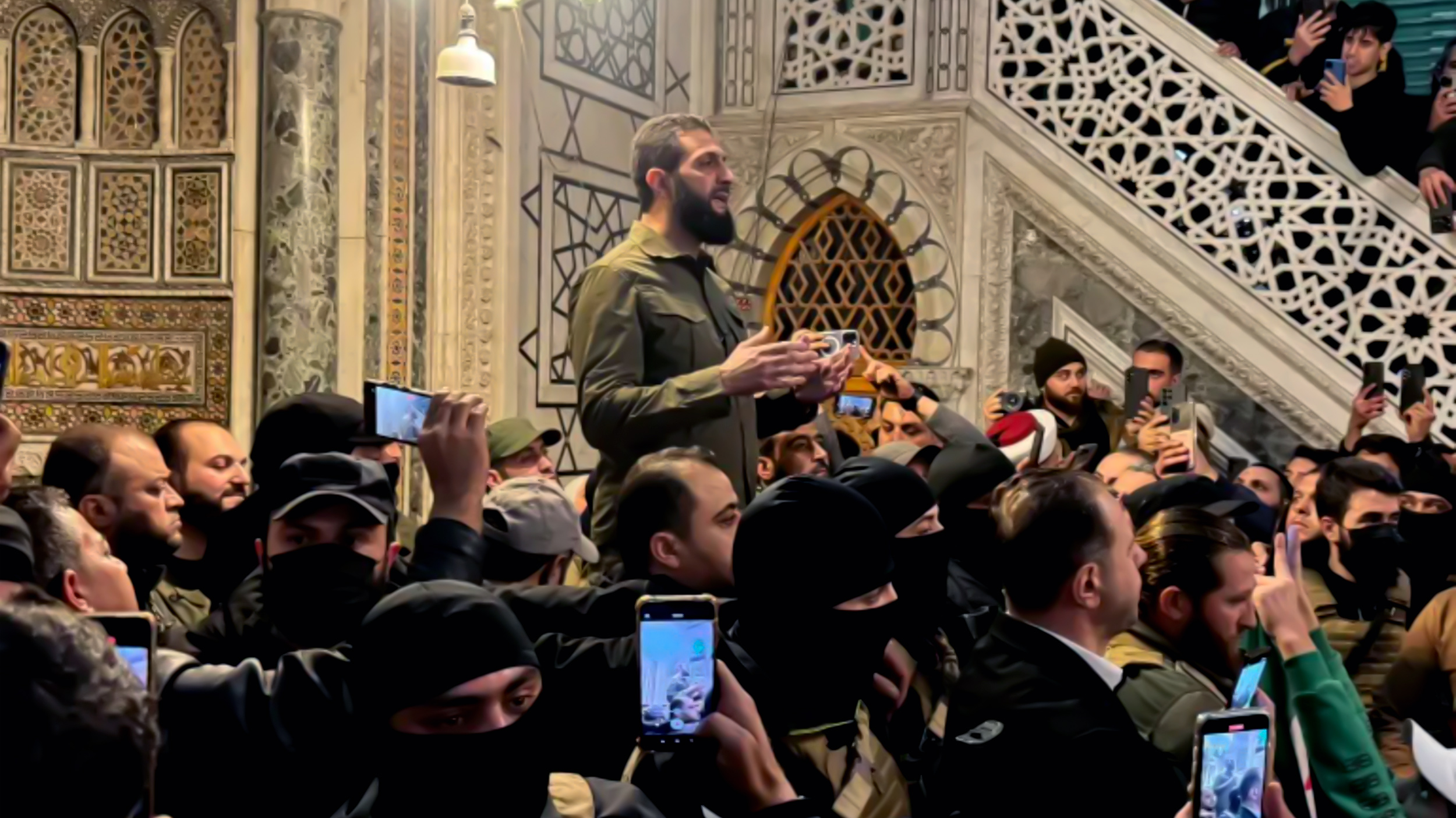
Starting on 27 November 2024, an alliance of armed opposition forces in the Idlib governorate launched a series of operations against the Syrian regime; by 8 December, Damascus had fallen and Bashar al-Assad had fled the capital.
After opposition forces, led by Hayat Tahrir al-Sham (HTS) took Aleppo, Moscow hastily reached out to Istanbul in an attempt to persuade it to rein in the rebels, while also ordering the Russian air force in Syria to provide air support for regime forces. But having deployed most of its forces in Syria to the Ukrainian front, it could not muster sufficient defenses. Its airstrikes thus did little to slow the rebel advance.
Iran, too, acted quickly, seeing Assad’s Syria as a key strategic pillar in the Levant. Foreign Minister Abbas Araghchi went on a tour of the region, meeting with Assad before heading to Ankara and then Baghdad in a bid to rally support for the Syrian regime. Despite pressure, both Turkish and Iraqi officials refused to extend assistance. Realising that no support was forthcoming and that the Syrian army was no longer able to defend the regime, Araghchi, like his Russian counterpart, lost hope that the Assad regime could be saved.
The victory of the Syrian revolution upset the balance of power in the Levant overnight, triggering a scramble among regional and international powers seeking to gain, or retain, a foothold in the country. The collapse of the Assad regime represents a severe setback to Iran’s regional expansionist project. Although it is too early to predict how Turkish-Syrian relations will evolve, the collapse of the regime most certainly serves Turkish security interests and enhances Turkey’s status and weight in the regional order.
Numerous external and internal challenges face the Syrian transitional authority. The first is to obtain international recognition, especially from the United States and Europe, of the new government in Damascus and have the sanctions imposed under Assad lifted. HTS—previously an affiliate of al-Qaeda in Syria—is also keen to have its name removed from various designated terrorism lists. These measures are vital for the legitimacy of the new regime, the reunification the country and economic recovery.
Early signals from Washington and the United Nations, however, suggest that the demands of Damascus’s new leaders will not be met quickly. Indeed, statements by US officials indicate that Washington will leverage terrorism designations and sanctions to obtain concessions from Syrian leaders that favour US policy interests in Syria and the Middle East.
The most immediate problem for the new government is Israel, which just a few hours after Assad fled launched hundreds of airstrikes on military bases and weapons depots throughout Syria. After declaring the 1974 disengagement agreement between Syria and Israel null, Israeli forces seized control of much of the Syrian demilitarised zone, advancing 20 kilometres in some areas.
While HTS leader Ahmed al-Sharaa belatedly called Israeli actions a violation of the disengagement agreement, it is not clear how the aggression will be handled. The transitional government is in no position to engage in a new conflict, but whether sufficient international pressure exists to force Israel to withdraw from the territory it has occupied remains an open question.
Internally, a top priority will be extending the transitional government’s authority throughout Syria, which is currently a patchwork of territories controlled by multiple armed factions and political groupings. This effort is crucial to restore unity and build a pluralist system that enjoys the support of the broadest possible political and popular base. It is also key to rebuilding Syrian defences to maintain security, protect the border and exercise sovereignty.
Without concrete progress on this issue, questions will remain about who is entitled to lead the transition and the legitimacy of this leadership. It will thus be difficult to install a relatively stable transitional government that can begin drafting a new constitution and lead a broad dialogue on issues such as the nature of the system of government, the identity of the state and the Kurdish question.
At the same time, progress on these issues depends in part on the international community’s support for the new Syria and the kind of concessions the transitional government will need to make to secure that support. The statement issued on 14 December following the meeting of the Arab Ministerial Liaison Committee on Syria, held in Aqaba, makes it clear the participants want international supervision of the process of rebuilding the new Syria.
Syria must therefore navigate a long, winding road before the features of the new state crystallise and a democratic system of governance is established. All other matters— reconstruction, the return of refugees, and the revival of the economy and the state’s finances—are medium-term challenges, but they come second to unity, state sovereignty, and defence.
**This is a summary of a policy brief originally written in Arabic available here.